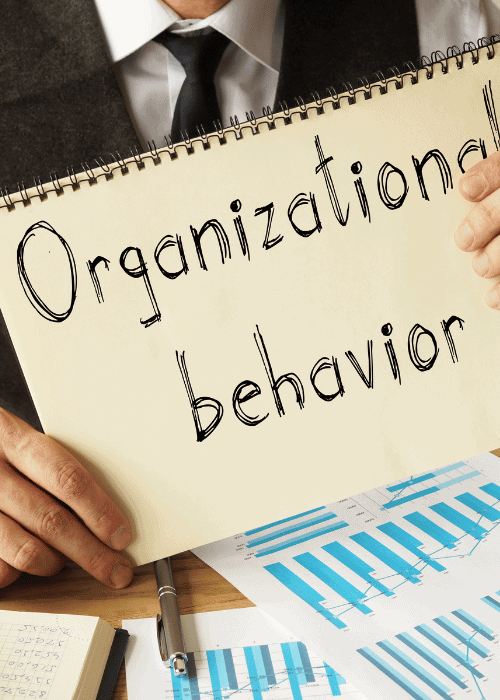Advanced Diploma in Organizational Behavior
Original price was: $400.00.$199.00Current price is: $199.00.
⭐⭐⭐⭐⭐ (13 reviews)
To ensure that the Advanced Diploma in Organizational Behavior is accessible to a wide range of applicants, there are no formal prerequisites for enrollment. This inclusive approach aims to accommodate individuals from various educational and professional backgrounds, recognizing the value of diverse perspectives and experiences in enriching the learning environment.
While there are no mandatory prerequisites, it is worth noting that individuals who possess experience in the field or hold previous qualifications may find themselves well-positioned to excel in the program. Such background knowledge can enhance understanding of the course material and facilitate a deeper engagement with the concepts presented. However, this should not deter interested parties without direct experience or qualifications from applying, as the program is designed to be comprehensive and accessible to all motivated learners.
This emphasis on inclusivity and the recognition of varied experiences aligns with the program’s goal to cultivate a diverse cohort of students. By welcoming applicants from different walks of life, the program fosters a rich learning environment where insights from various domains can intersect, leading to a more holistic understanding of organizational behavior.
Upon completing this program, you will:
- Master the fundamental theories and concepts of organizational behavior.
- Analyze individual and group dynamics within the workplace.
- Develop essential leadership and communication skills that drive positive outcomes.
- Understand change management principles for effective organizational transformations.
- Create strategies to resolve conflict and foster a productive and collaborative environment.
- Enhance decision-making, negotiation, and problem-solving abilities
Course Benefits
- Career Enhancement: Develop the skills you need to become an influential leader and progress your career in human resources, management, or related fields.
- Real-World Application: Implement practical strategies and frameworks that drive success directly within your organization.
- Confidence and Competence: Gain the knowledge to address organizational issues with greater confidence and make well-informed decisions.
Course Features
- Online Delivery: Enjoy the convenience and flexibility of learning from anywhere.
- Self-Paced: Progress at your own pace, balancing work and studies.
- Interactive Learning Materials: Engage with videos, readings, case studies, and simulations.
- Expert Instructors: Learn from highly qualified experts in the field of organizational behavior.
- Community Support: Connect with peers and instructors in a collaborative learning environment.
Testimonials
🌟🌟🌟🌟🌟 “This program transformed how I view the workplace. The knowledge and tools provided have made me a more effective and impactful leader.” – Jeff M., HR Manager (USA)
🌟🌟🌟🌟🌟 “An excellent investment in my professional development! The practical takeaways from this course have been invaluable.” – Susan L., Project Manager (UK)
Curriculum
Module 1: Introduction to Organizational Behavior
- Key models and theories
- Individual behavior and personality in the workplace
Module 2: Perception, Motivation, and Job Satisfaction
- How we perceive the work environment
- Theories and techniques for motivating employees
- Factors affecting job satisfaction
Module 3: Group Dynamics and Teamwork
- Group development, norms, and roles
- Building high-performance teams
Module 4: Leadership
- Leadership styles and theories
- Developing effective leadership skills
Module 5: Communication in Organizations
- Communication channels, barriers, and strategies
- Effective interpersonal communication
Module 6: Power, Politics, and Conflict
- Understanding organizational politics
- Conflict resolution and negotiation tactics
Module 7: Decision Making
- Decision-making models and biases
- Improving individual and group decision-making
Module 8: Organizational Culture
- Creating, managing, and assessing organizational culture
Module 9: Organizational Change and Development
- Models and processes for organizational change
- Strategies for overcoming resistance
Module 10: Stress and Well-being in Organizations
- Sources and impacts of workplace stress
- Promoting physical and psychological well-being
Module 11: Organizational Design and Structure
- Designing organizational structures for effectiveness
Module 12: Ethics in Organizational Behavior
- Ethical frameworks and decision-making

